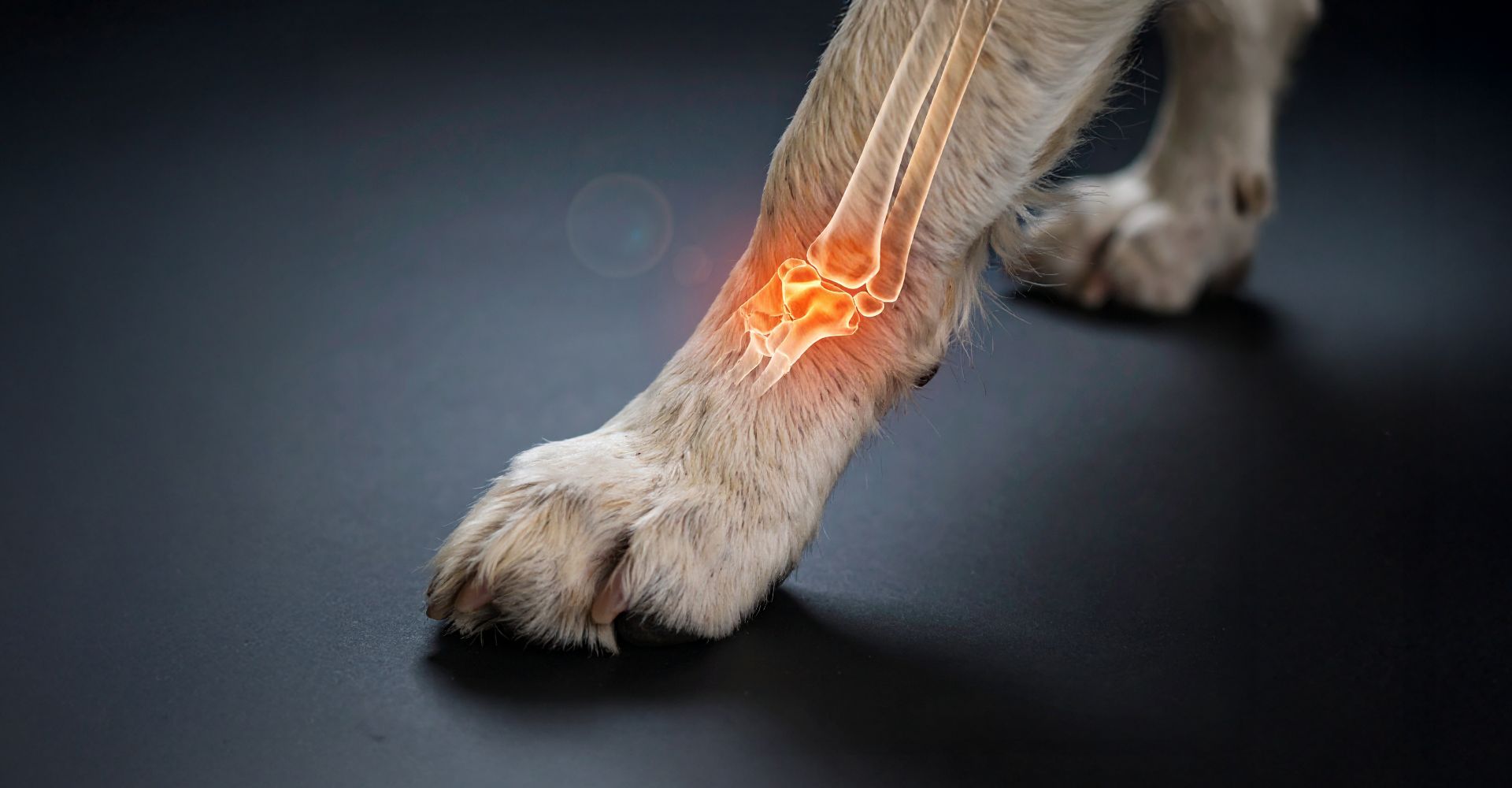Joint health issues are common in dogs, especially as they age or in larger breeds, but with the right approach, you can help support their mobility and comfort throughout every life stage. The good news? There are proactive ways to manage joint health, and pet insurance can help cover the costs of treatments, supplements, and even vet-recommended diets that support mobility care.
Types of Mobility and Joint-Related Health Issues
Joint issues in dogs can stem from several causes:
- Arthritis: Inflammation in one or more joints causing pain and reduced motion.
- Hip or elbow dysplasia: Improper development of the joint socket, often hereditary.
- Ligament injuries: Such as a torn cruciate ligament.
- Luxating patella: A kneecap that dislocates easily, common in smaller breeds.
- Degenerative joint disease (DJD): Chronic deterioration of cartilage and bone.
Each condition may require different care plans, which is why understanding your dog’s specific diagnosis matters.
Common Signs of Joint Pain in Dogs
Signs your dog may be experiencing joint discomfort include:
- Limping or favouring one leg
- Stiffness, especially after rest
- Reluctance to jump, climb stairs, or run
- Irritability or withdrawal
- Licking or chewing at joints
If you notice any of these symptoms, speak to your vet right away.
When to Start Joint Supplements
Many pet parents wait too long before starting joint support. Ideally, supplements should begin before joint damage sets in, especially in large breeds or those with a genetic predisposition. Starting as early as age 1–2 in large dogs, or at the first sign of stiffness in older dogs, can be a smart move. Your vet can help determine the best timing.
RELATED: THINGS PET INSURANCE DOESN’T COVER
Dog Joint Supplements List
When shopping for joint supplements, look for products that contain:
- Glucosamine: A building block for cartilage repair
- Chondroitin: Helps retain water in cartilage
- MSM (Methylsulfonylmethane): Anti-inflammatory properties
- Omega-3 fatty acids (from fish oil): Reduces joint inflammation
- Turmeric/curcumin: Natural anti-inflammatory
- Green-lipped mussel: Rich in omega-3s and glycosaminoglycans
Choose vet-recommended, high-quality supplements for the best results.
RELATED: A GUIDE TO CARING FOR YOUR SENIOR PET
Supporting Mobility in Dogs: Everyday Habits and Special Diets
In addition to supplements, everyday habits matter. Keep your dog at a healthy weight to reduce joint strain and ensure they get low-impact exercise like swimming or walking.
Diet also plays a critical role. Hill’s Pet Nutrition, for example, offers specially formulated dog foods with mobility-supporting ingredients.
Pets with Joint Issues: How to Help Reduce Pain
If your dog is already experiencing joint pain, there are still ways to help:
- Provide orthopaedic bedding
- Use ramps instead of stairs
- Administer vet-approved pain relief
- Consider physical therapy or hydrotherapy
- Feed a joint-supportive diet
- Keep up with regular vet check-ups
Keep Your Pup Moving Happily
The best joint care for dogs is proactive care. At dotsure.co.za, our pet insurance policies can assist with costs related to mobility care, including vet visits, diagnostics, prescribed supplements, therapeutic treatments, and more. If you’re ready to support your dog’s joint health and protect your budget, contact us today to learn more.



